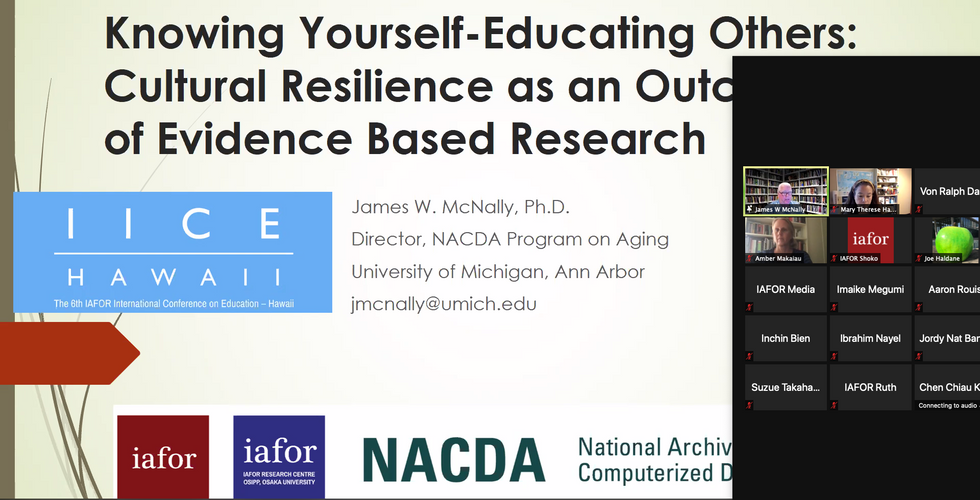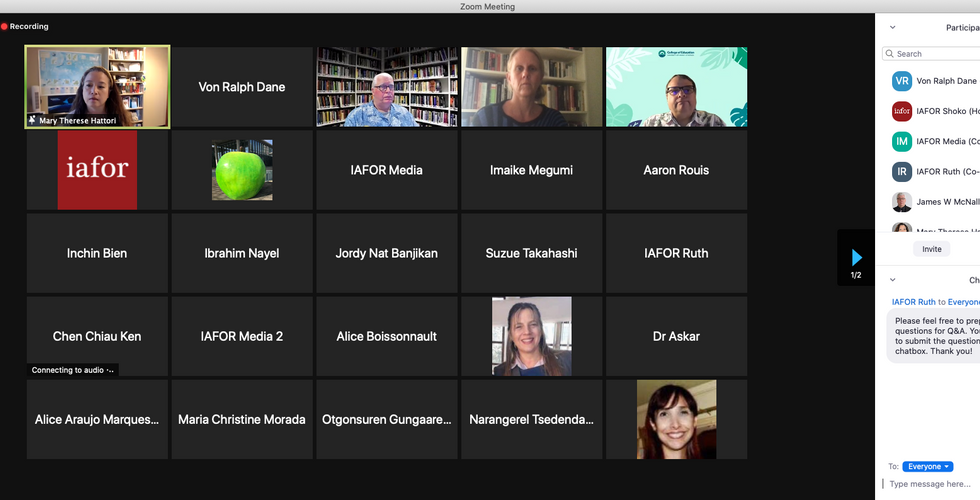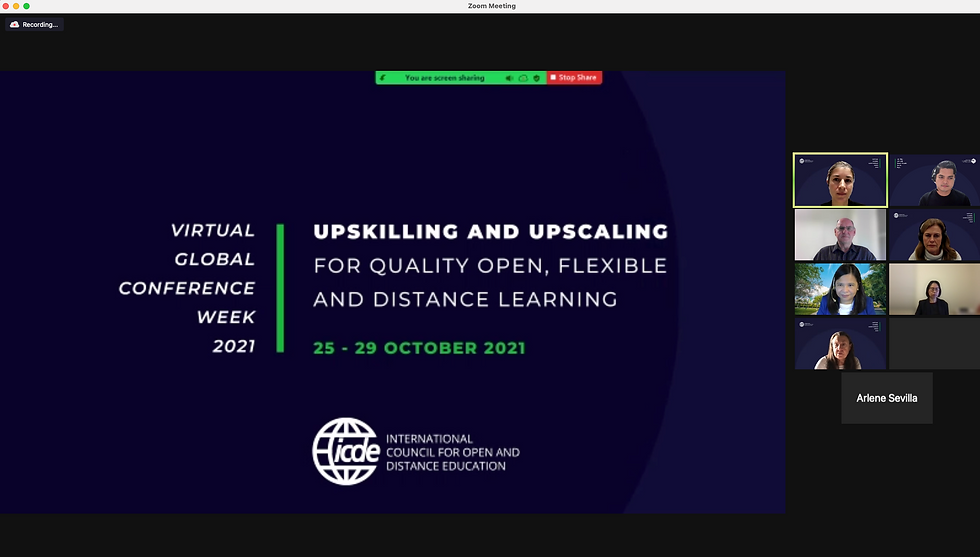The ChildSIDE app at the the 2021 6th IAFOR International Conference on Education – Hawaii
- Von Ralph Dane Marquez Herbuela

- Jan 10, 2021
- 3 min read
Updated: May 26, 2021
For the academic community, perhaps the most important thing that this crisis will have taught us is that the freedoms that we hold so close, such as those of expression and movement in a globalised world, bring to the fore questions of transparency and governance on an international level. This serves to remind us that questions of human security and public policy, as they relate to such issues as health, climate change, pollution, and individual rights and responsibilities, do not happen in sovereign vacuums, but instead impact other nation-states. If one country is not as transparent as it otherwise might be, then the repercussions are not only domestic, but frequently felt across borders. In a globalised world, it follows that our problems are increasingly global, entangled, and enmeshed.
Dr Joseph Haldane Chairman & C.E.O
The International Academic Forum (IAFOR)
From January 6th to 9th, 2021, the 6th IAFOR International Conference on Education, held in collaboration with the College of Education at the University of Hawai’i Manoa gathered nearly 150 students, professors, and experts in the fields of education from all over the globe.

Image from IICE2021 website: https://iicehawaii.iafor.org/iicehawaii2021/#programme
Keynote speeches and plenary sessions were held during the first two days of the conferences. Dr. Som Naidu who is currently Pro-Vice Chancellor and Director, Center for Flexible Learning, at the University of the South Pacific discussed his views on Recalibrating Educational and Institutional Choreographies to Lead Learning for Tomorrow. He was followed by another keynote speech by Dr. Christine R. Yano, Professor of Anthropology at the University of Hawai'i who discussed Critical Empathy: The Role of Education Amidst Xenophobic Pandemonium. A very interesting keynote talk on Resilience: One Man’s Journey Across the World was delivered by Lowell Sheppard from his 40 foot Sailboat currently in Tokyo Bay.
Each keynote speech was followed by plenary sessions on The Development, Use, and Exploration of Open Educational Resources in Higher Education by Dr. Beth Tillinghast, Billy Meinke & Dr. Veronica Howard. Plenary presenters, Dr. Amber Strong Makaiau, Mary Therese Hattori, Dr. James W. McNally & Dr. Sela Panapasa also discussed the Cultural Resilience in a Changing World. The last plenary session focused on the Post-pandemic Online Education: Moving from Crisis Intervention to Optimal Experience, a very relevant and timely topic delivered by Dr. Michael Menchaca, Ariana Eichelberger, Peter Leong, Paul McKimmy & Daniel Hoffman (Moderator) from the e University of Hawai'i at Manoa.


Image from IICE2021 website: https://iicehawaii.iafor.org/iicehawaii2021/#programme
On the last day of the conference, we were able to present again our study on Children With PIMD/SMID’s Expressive Behaviors: Development and Testing of Childside App – The First Step for Independent Communication and Mobility in the Live Stream Session 3: Education & Difference: Gifted Education, Special Education, Learning Difficulties & Disability led by Carmina Untalan. Our presentation focused on describing the design and development of ChildSIDE app and the evaluation of its accuracy in terms of collecting behavior (versus paper-based collection) and transmitting location (iBeacon and GPS) and environment data (ALPS Sensors and OpenWeatherMap API) to the database. We utilized a cross-sectional-observational study design and conducted multiple single-subject face-to-face and videorecorded sessions among 20 child-caregiver dyads at a special needs school. We found out that the app was more likely to have complete and correct records than the paper-based method (P < .001) and was also able to detect and transmit location and environment data to the database with above 93% accuracy except for iBeacon (82.3%). Results also revealed that the expressive behaviors were manifested mainly through body and hand movements and vocalizations.



It was indeed an honor and a privilege to have presented our study among the experts in the field of education and technology during this conference. Although it was held online, we were still able to share our efforts on improving the lives of many children with disabilities and build connections with other organizations and experts in the field. Truly, promoting organized international cooperation at all levels to find solutions to the world's most pressing challenges has never been more relevant.
For more information about the conference, please click this link: https://iafor.org/archives/conference-programmes/iicehawaii/iicehawaii-programme-2021.pdf
or visit IAFOR website at: https://iicehawaii.iafor.org/iicehawaii2021/#programme























Comments